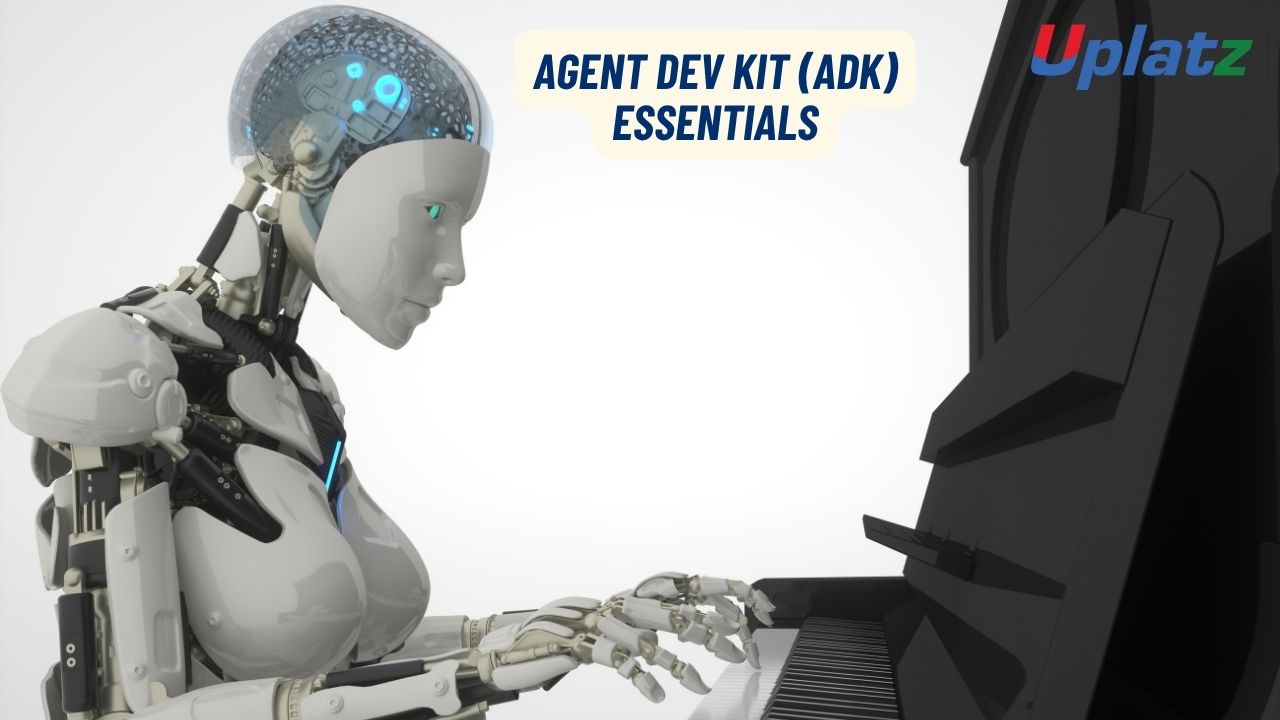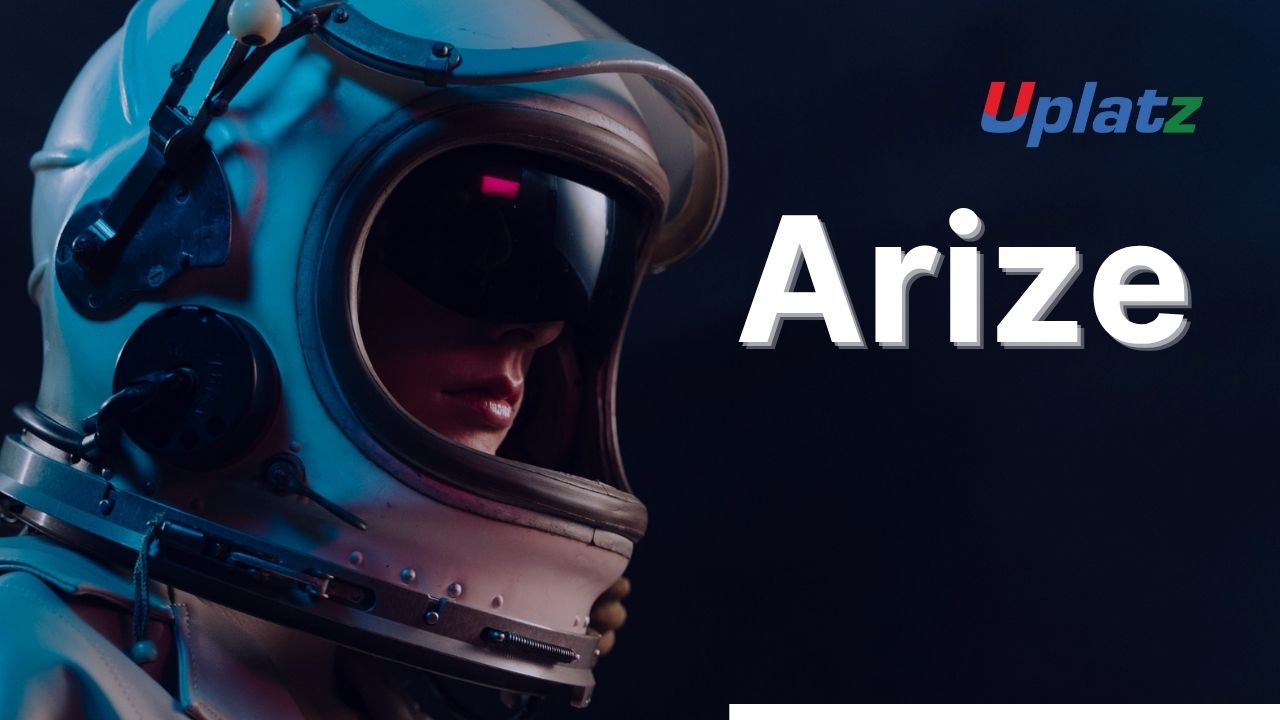AutoGen: Multi-Agent Conversational AI Framework
Build powerful LLM-based multi-agent systems with AutoGen—design, orchestrate, and deploy autonomous agents that talk, think, and solve problems.Preview AutoGen: Multi-Agent Conversational AI Framework course
Price Match Guarantee Full Lifetime Access Access on any Device Technical Support Secure Checkout Course Completion Certificate 92% Started a new career
BUY THIS COURSE (
92% Started a new career
BUY THIS COURSE (GBP 12 GBP 29 )-
 81% Got a pay increase and promotion
81% Got a pay increase and promotion
Students also bought -
-

- Agent Dev Kit (ADK) Essentials
- 10 Hours
- GBP 12
- 10 Learners
-

- Agentic AI for Cybersecurity
- 10 Hours
- GBP 12
- 10 Learners
-

- Arize
- 10 Hours
- GBP 12
- 10 Learners

AutoGen is a cutting-edge, multi-agent conversational AI framework developed by Microsoft Research that allows developers to create intelligent ecosystems of collaborating Large Language Model (LLM) agents. Built in Python, AutoGen simplifies the orchestration of conversational workflows among multiple AI agents that can reason, debate, plan, and act — much like a team of humans solving complex problems together.
This self-paced, project-driven online course takes you from foundational understanding to advanced hands-on mastery of multi-agent design and orchestration. Whether you’re an AI engineer, researcher, or developer, this course will equip you with the skills to build scalable AI systems where agents cooperate, self-correct, and complete sophisticated reasoning tasks in natural language.
🔍 What is AutoGen?
AutoGen is an open-source framework that enables dynamic communication between AI agents, each powered by large language models such as GPT-4, Claude, or local LLMs. Every agent can be configured with its own role, personality, tools, and memory, allowing you to simulate realistic collaboration scenarios — from a code-reviewing team to a research collective or an automated data analysis pipeline.
At its core, AutoGen offers:
-
Multi-agent coordination through structured dialogues
-
Customizable agent personas with role-specific reasoning
-
Built-in support for memory, planning, and feedback loops
-
Human-in-the-loop integration for supervised collaboration
-
Tool invocation and external API access for real-world task execution
By combining these capabilities, AutoGen becomes a powerful framework for building goal-oriented AI systems that go beyond single-prompt question answering.
⚙️ How AutoGen Works
AutoGen builds upon the conversational paradigm of LLMs by allowing agents to communicate autonomously in a loop until a goal is reached. Each agent can send, receive, and process messages based on its internal logic and context memory.
Key components include:
-
Agent – A logical entity with its own goal, prompt template, and response logic.
-
Conversation – A structured dialogue where agents exchange context and coordinate steps.
-
Task Orchestrator – The controller that manages interaction flow and ensures goal alignment.
-
Memory – Persistent storage that helps agents recall previous states or user feedback.
-
Tool Interface – Enables agents to call APIs, databases, or code execution environments.
This design enables self-correcting reasoning, where one agent critiques another’s output, requests clarification, or retries tasks based on context — enabling iterative improvement and collaborative problem-solving.
🏭 How AutoGen is Used in the Industry
AutoGen is transforming the way enterprises and research teams leverage AI by enabling multi-agent systems that function like autonomous teams. Here are some examples of industry use cases:
-
Software Development & Debugging: A “developer agent” writes code while a “reviewer agent” checks for bugs or optimization opportunities.
-
AI Research Collaboration: Multiple research bots can explore hypotheses, summarize findings, and critique one another’s reasoning.
-
Business Process Automation: Multi-agent teams handle customer queries, financial reporting, and workflow approvals through coordinated interactions.
-
Data Analytics Pipelines: Specialized agents fetch, clean, and analyze data collaboratively before generating insights or visualizations.
-
Knowledge Management: Document analyzers and Q&A agents work together to extract structured insights from unstructured enterprise data.
Major technology organizations and startups alike are experimenting with AutoGen to scale human-AI collaboration, reduce cognitive load, and automate complex decision workflows that previously required human oversight.
🌟 Benefits of Learning AutoGen
Mastering AutoGen gives you a unique advantage in the rapidly evolving field of multi-agent AI systems. Here’s why learning this framework matters:
-
Hands-on LLM Engineering: Learn to design, deploy, and orchestrate intelligent conversational agents.
-
Cutting-Edge Technology: AutoGen represents the frontier of AI research in agent collaboration and reasoning.
-
Cross-Domain Applications: Apply skills to software engineering, data science, automation, research, and education.
-
Real-World Utility: Build tools that improve productivity, automate decision-making, and support enterprise AI operations.
-
Career Growth: Gain expertise in an emerging area of AI that bridges natural language processing, automation, and human-AI interaction.
-
Open-Source Flexibility: Work with community-driven tools and integrate AutoGen with platforms like OpenAI, Azure OpenAI, or local models (e.g., LLaMA, Mistral, Claude).
By the end of the course, you’ll not only know how to use AutoGen, but also why multi-agent systems represent the next major leap in artificial intelligence.
📘 About This Course
This course provides both conceptual depth and practical application, helping you master every major feature of AutoGen from scratch. You’ll begin by learning how LLM agents communicate, and gradually move toward designing full-fledged ecosystems of collaborating agents.
Topics include:
-
Introduction to LLM orchestration and multi-agent design
-
Understanding AutoGen architecture (agents, conversations, orchestrators)
-
Building your first single-agent and multi-agent workflows
-
Configuring agent memory, tool use, and self-correction loops
-
Managing state, logging, and traceability of conversations
-
Designing domain-specific agent teams (research bots, coders, debuggers, planners)
-
Integrating AutoGen with APIs, vector databases, and external tools
-
Running real-world projects using AutoGen + OpenAI/Azure OpenAI APIs
-
Deploying your multi-agent systems in cloud or local environments
You’ll also explore advanced case studies, including autonomous debugging, AI code reviewers, research co-pilots, and knowledge synthesis agents.
👩💻 Who Should Take This Course
This course is ideal for learners aiming to lead the future of intelligent automation and collaborative AI systems:
-
AI Engineers & Developers: Build, customize, and deploy LLM-based multi-agent frameworks.
-
Researchers: Prototype experiments involving reasoning, dialogue, and cooperation among agents.
-
Data Scientists & ML Practitioners: Automate data workflows and analytical discussions using agent teams.
-
Software Architects: Design scalable multi-agent systems for enterprise or research environments.
-
AI Enthusiasts & Students: Gain early expertise in one of the fastest-growing areas of artificial intelligence.
Both beginners and advanced learners will benefit — beginners from guided labs and step-by-step setups, and experts from architectural deep dives and real-world project integration.
🧩 Course Structure and Delivery Format
This is a self-paced, modular course designed for experiential learning. Each module builds upon the last, guiding you through theory, demonstration, and application.
Each module includes:
-
HD video lessons with hands-on demonstrations
-
Downloadable code notebooks and sample projects
-
Interactive labs for deploying agents and debugging workflows
-
Assignments based on real-world use cases
-
Knowledge checks and quizzes for conceptual reinforcement
-
Trace logs and visual flow diagrams to analyze agent behavior
You’ll also gain lifetime access to all course updates, ensuring you remain current as AutoGen continues to evolve.
🚀 What You’ll Be Able to Do
By the end of this course, you’ll be able to:
-
Build, configure, and run multi-agent conversational systems.
-
Define custom agent roles, objectives, and communication rules.
-
Implement memory-aware, tool-using, and feedback-driven agents.
-
Create autonomous pipelines where AI agents collaborate to debug, analyze, or reason.
-
Integrate AutoGen with external APIs, data sources, and frameworks.
-
Deploy scalable, reproducible, and explainable AI ecosystems.
Your skillset will position you at the forefront of AI orchestration engineering, an emerging discipline in the post-ChatGPT era.
🎯 Final Takeaway
As AI systems grow more capable, collaboration among intelligent agents is becoming the next paradigm shift. AutoGen stands at the heart of this evolution — empowering you to design ecosystems of agents that reason, critique, and co-create like teams of humans.
This course is your comprehensive guide to mastering multi-agent AI design, bridging theory and practice through immersive projects. Whether your goal is to automate workflows, enhance productivity, or push AI research forward, mastering AutoGen will enable you to build the future of collaborative artificial intelligence.
Course/Topic 1 - Coming Soon
-
The videos for this course are being recorded freshly and should be available in a few days. Please contact info@uplatz.com to know the exact date of the release of this course.
-
Understand the architecture and design principles behind AutoGen.
-
Define and configure intelligent agents with roles, memory, and behavior.
-
Build multi-agent systems capable of collaborative problem solving.
-
Orchestrate agent conversations using conversation graphs.
-
Integrate external tools, APIs, and user feedback in agent flows.
-
Implement human-in-the-loop workflows using AutoGen’s UI agents.
-
Deploy AutoGen applications with OpenAI, Azure, or local LLMs.
-
Debug and monitor agent conversations using tracing and logs.
-
Apply multi-agent logic to real-world scenarios like code review or research bots.
-
Follow best practices in safety, prompt chaining, and agent alignment.
- What is AutoGen?
- Single-agent vs multi-agent LLM design
- Core use cases and system architecture
- Setting up AutoGen (local + cloud)
- Required packages and LLM providers
- Anatomy of an agent conversation
- Basic agent definition and configuration
- Roles, objectives, and memory
- Running simple agent tasks
- Creating multiple agents with different personas
- Defining goals, stopping criteria, and interactions
- Structuring inter-agent dialogues
- Built-in tool use and plugin system
- Invoking Python functions from agents
- Calling APIs and processing outputs
- Role assignment and message flow
- Using GroupChat and AutoGen’s controller
- Conditional task switching
- Introducing HumanProxyAgent
- Taking user input in a conversation loop
- Real-time interaction and override
- Using observe functions to track messages
- Conversation history and performance
- Visualizing the chat flow
- Project 1: Multi-Agent Code Debugger (Dev + Tester)
- Project 2: Research Assistant Team (Planner + Researcher + Writer)
- Project 3: Autonomous Data Pipeline Builder
- Running on cloud VMs or containers
- Using AutoGen with streamlit or Gradio
- Scheduling agent runs via APIs
- Guardrails for autonomous reasoning
- Prompt templates and behavior shaping
- Metrics for evaluating agent collaboration
Upon successful completion of the AutoGen: Multi-Agent Conversational AI Framework course, learners will receive a Certificate of Completion from Uplatz, verifying their expertise in developing multi-agent LLM systems using AutoGen. The certification demonstrates advanced skills in AI orchestration, cooperative agent design, prompt engineering, and real-world LLM application architecture. It is ideal for AI engineers, researchers, automation experts, and innovators exploring the future of intelligent agents.
- Multi-Agent Systems Engineer
- AI Orchestration Developer
- LLM Research Engineer
- Conversational AI Architect
- Applied AI Scientist
- Prompt and Agent Designer
AutoGen is a multi-agent orchestration framework from Microsoft that allows agents to talk to each other using natural language and complete tasks collaboratively, unlike single-agent prompt frameworks.
Each agent is a Python class with specific configurations like name, system message, LLM model, memory, and behavior callbacks.
Code debugging, research collaboration, document summarization, autonomous planning, and developer team simulations are common use cases.
GroupChat enables structured conversations between multiple agents, controlling who talks when and how the chat progresses based on logic.
Yes, using the HumanProxyAgent, you can integrate real-time human input as part of the agent conversation or decision-making process.
Agents can invoke Python functions or external APIs when equipped with tool access, enabling them to retrieve data or perform actions during reasoning.
AutoGen supports OpenAI, Azure OpenAI, Hugging Face, and local models like Llama via LangChain or direct API integration.
You can observe and log messages using callback hooks, trace message history, and analyze inter-agent communication using built-in utilities.
Controlling message flow, avoiding infinite loops, defining clear roles, and handling failure cases are key design challenges.
Using feedback functions, conversation length, goal completion rates, and log inspection, you can evaluate the success and efficiency of agent tasks.









